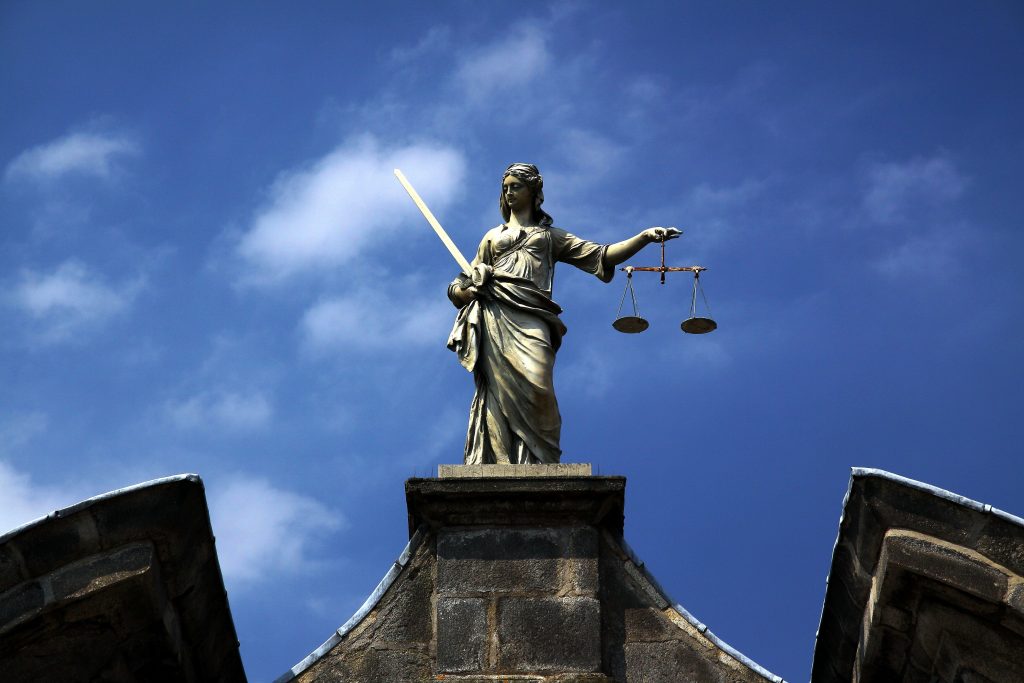Parliament will be suspended just weeks before the Brexit deadline, a move many MPs argue is in breach of the constitution and human rights law.
Prime Minister Boris Johnson has said a Queen’s Speech will take place on 14 October, after the suspension, to outline his “very exciting” agenda.
It means that MPs will be barred from sitting in Parliament for an as-yet-unspecified number of days in the lead up to the event – reducing the time they have to pass any laws that could stop the PM taking the UK out of the EU without a deal on 31 October.
Speaking today after reports emerged, Mr Johnson said Britain was “overdue a Queen’s Speech”. He added that he would “not wait wait until October 31 before getting on with our plans to take this country forward.”
Among those who have criticised the move is Commons Speaker John Bercow, who said it is a “constitutional outrage”.
“Shutting down Parliament would be an offence against the democratic process and the right of Parliamentarians as the people’s elective representatives,” he said in a statement.
“However it is dressed up, it is blindingly obvious that the purpose of the prorogation now would be to stop Parliament debating Brexit and performing its duty in shaping a course for the country.”
Scottish National Party politician Joanna Cherry has stated that she is aiming to speed up legal action in the Scottish courts to block the suspension of Parliament.
Don’t panic! We have asked the Scottish court for a hearing tomorrow on the legality of this purported suspension of Parliament & we’re confident we’ll be heard this week #NoDeal #Brexit #Prorogation #Cherrycase pic.twitter.com/Q1UvA7EJjl
— Joanna Cherry QC MP (@joannaccherry) August 28, 2019
Labour leader Jeremy Corbyn has also requested a meeting with Queen, the Guardian reports, having written to her to express concern over Mr Johnson’s plans.
However the request to suspend Parliament has now been approved.
Downing Street initially insisted only four Commons sitting days would be lost. But it has now been confirmed that the suspension must come into effect no earlier than Monday 9 September and no later than Thursday 12 September, until Monday 14 October.
It’s done pic.twitter.com/YGdB0WX4zk
— Vicki Young (@BBCVickiYoung) August 28, 2019
RightsInfo spoke to Brexit specialist George Peretz QC, of Monckton Chambers, to understand how prorogation affects our rights and the constitution.
What About Human Rights?

George Peretz QC, barrister at Monckton Chambers.
“There will be some making the argument that this is a human rights issue but I think it is a bit tenuous,” said Mr Peretz QC.
Citizens’ rights to elect Parliament is safeguarded in Article 3 Protocol 1 of the Convention of Human Rights, he explained.
It requires states to “hold free elections at reasonable intervals by secret ballot, under conditions which will ensure the free expression of the opinion of the people in the choice of the legislature”.
Mr Peretz said: “It is quite a step from saying ‘I have the right to vote for an effective parliament’ to an argument that suspending parliament for a period of time would breach that right.”
He said that leaving the European Union in general will have numerous human rights implications – from the repeal of the Charter of Fundamental Rights, which offers additional rights in the workplace among other areas, to the end of free movement.
But added that, with regards to suspending Parliament, the main legal argument centres on constitutional law.
What About The UK Constitution?

Image Credit: Pierre Louis Ferrer / Flickr.
“What the government will argue is that it is perfectly normal for Parliament to be prorogued for a couple of weeks before a Queen’s speech which opens a new session of Parliament,” said Mr Peretz QC. “It happens every year.”
The counter-argument, he explained, “is that it is a key right of Parliament to be engaged in holding the executive to account at a critical moment in history”.
“The claim will be that the PM could not lawfully advise the Queen to use her royal prerogative and suspend Parliament at this particular time as it would be contrary to the rights of Parliament.”
MPs are afforded the opportunity to vote on motions to suspend Parliament ahead of the recesses which take place at Easter, over the summer and while annual party conferences take place at the end of September and start of October.
But they have no say on when parliament is prorogued. This power historically sits with the Queen but is in practice exercised by the prime minister.
It could mean that MPs will not sit for up to 23 days before the Queen’s speech on 14 October, leaving them less than three weeks before the UK’s deadline to reach a deal on exiting the European Union.
The last two times Parliament was suspended for a Queen’s Speech that was not after a general election the closures lasted for four and 13 working days respectively, according to the BBC.
“It is a clever strategy by the government because it muddies the water,” Mr Peretz said. “Parliament will be sitting but just not for the whole time.
“But the first two weeks of October are going to be pretty critical. And clever strategies are sometimes too clever.”
He explained that the courts will need to decide whether prorogation is unlawful because it prevents the Parliament from holding the government to account during this particular moment in time.
An online petition calling on the government not to prorogue Parliament has so far gained more than 460,000 signatures at 4pm on 28 August.
What to know more?
- Read this explainer on where we are with Brexit and what it means for our human rights.
- Find out what a no-deal Brexit would mean for the rights of EU citizens in the UK.
- Check out our interactive graphic on what leaving the European Union could mean for our human rights.







